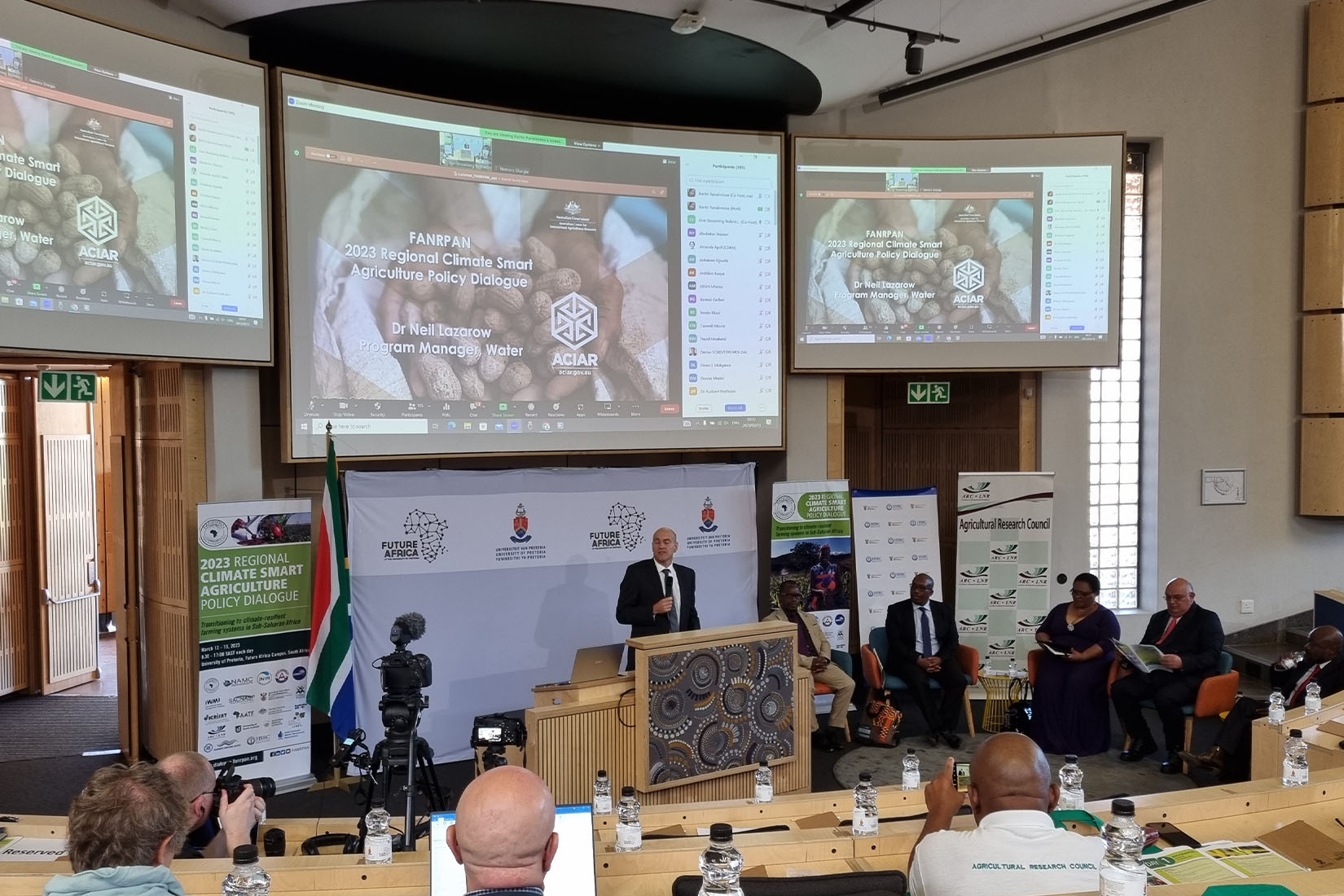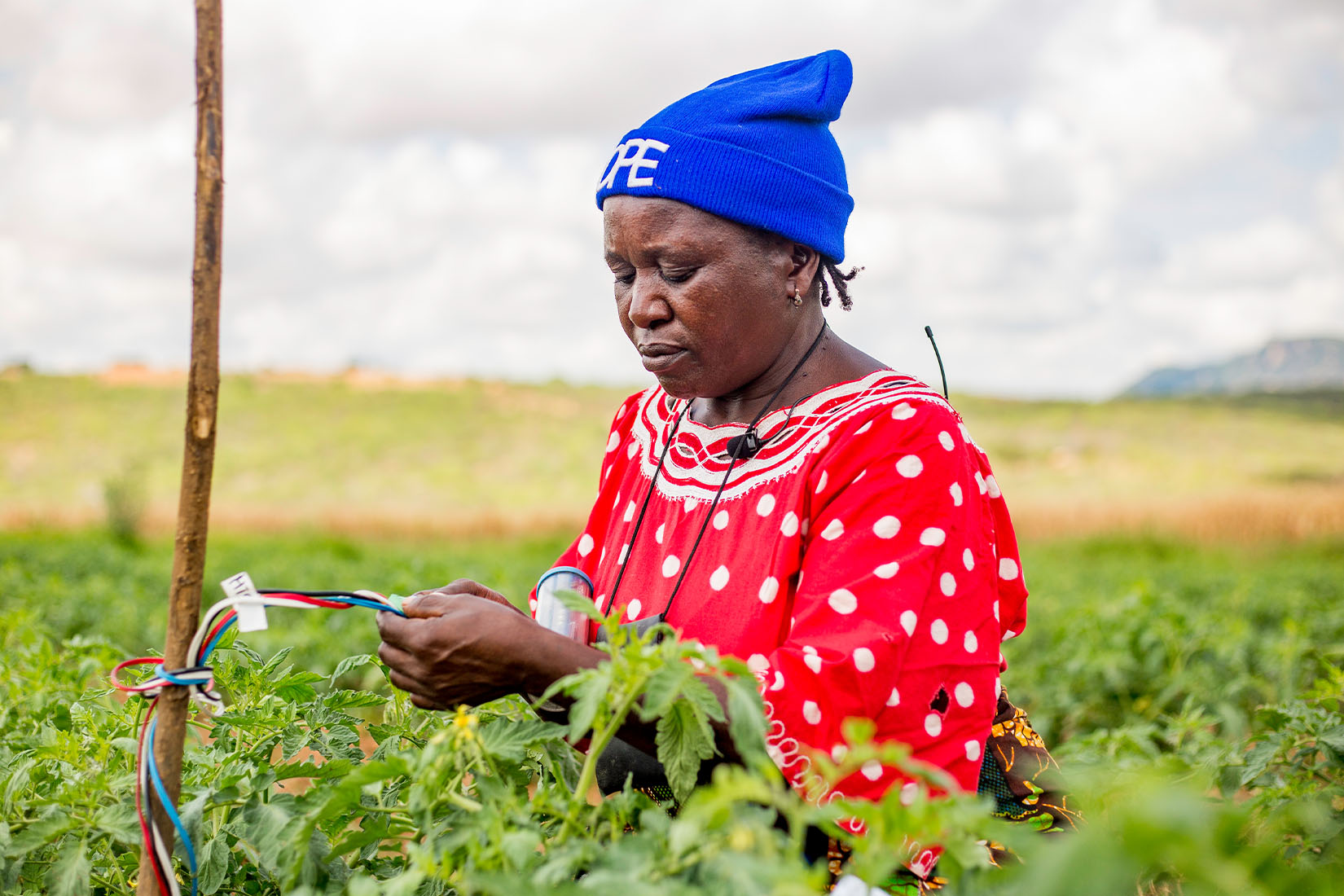Thought leaders, policy experts and researchers are gathering in South Africa this week to develop recommendations on how to build climate-smart and resilient farming systems in Sub-Saharan Africa and ensure the region's food security in the future.
The 2023 Regional Climate Smart Agriculture Policy Dialogue, organised by the pan-African Food, Agriculture and Natural Resources Policy Analysis Network (FANRPAN), has brought speakers and participants from around the world together. They will present and discuss evidence on the importance of climate-smart agriculture in transitioning to resilient farming communities and inform policy processes at national and regional levels.
ACIAR Research Program Manager, Water, Dr Neil Lazarow, and representatives from 3 ACIAR-supported projects will present on the event theme of 'Transitioning to Climate-Resilient Farming Systems in Sub-Saharan Africa'.
'FANRPAN plays an important governance, policy and capacity-building function and ACIAR has partnered with FANRPAN through projects such as the Transforming Irrigation in Southern Africa (TISA) project.
The dialogue will showcase 3 high-profile ACIAR projects, TISA, Virtual Irrigation Academy (VIA), and Digital Earth Africa. ACIAR participation supports efforts to contribute to knowledge sharing in the climate-agriculture domain in Africa,' said Dr Lazarow.

'Additionally, the dialogue provides an important platform for ACIAR to engage in a regional science-policy setting dialogue and offers a valuable networking opportunity for the Australian Government,' he added.
Agricultural water management has been an integral focus of ACIAR since 1982. ACIAR-supported speakers at the dialogue include VIA project leader Dr Richard Stirzaker (CSIRO), TISA project leader Professor Jamie Pittock (Australian National University), and Digital Earth Africa representatives Dr Lisa Rebelo (International Water Management Institute) and Dr Michael Wellington (Geoscience Australia).
Each of these projects has a strong focus on food and water security and the potential to be scaled out to assist decision-makers and smallholder farmers across the Indo-Pacific region.
The research team behind the 'Virtual Irrigation Academy phase 2: From water monitoring to learning to governance' project, for example, are delivering online training for up to 200 young African professionals, culminating in the top 10 students of the online course attending the 2023 Regional Climate Smart Agriculture Policy Dialogue in Pretoria, and participating in a multi-day workshop and an irrigation area study tour in Pretoria, South Africa. The research team will then support the alumni to establish and develop the VIA in their countries.
More than 750 farmers are using soil-monitoring tools connected to the VIA and TISA projects. Project teams have engaged in more than 40 irrigation schemes in Sub-Saharan Africa through a combination of on-farm tools to improve productivity and business innovation platforms. The efforts demonstrate that development towards sustainable farm businesses has reduced water use, time spent irrigating and conflicts over water, and it has increased yields, farm business profitability and non-farm incomes.

According to Dr Lazarow, a key marker of a successful dialogue will be establishing a deeper understanding of the opportunities for different actors across the smallholder farming sector.
'How can actors contribute to food systems security? Specifically, which efforts and investments continue to add value for rural farming communities? For example, what opportunities are there for farmers to access improved technology and practices to support on-farm productivity, and what opportunities are there for farmers and rural communities to scale out through value-added off-farm production?' asked Dr Lazarow.
'Climate systems are changing in Sub-Saharan Africa, amplifying already stressed water and food security challenges for many communities. Bringing leading thinkers and practitioners together provides a platform to share knowledge and experience and to discuss opportunities to support policymakers and communities in developing appropriate investment strategies to build community resilience in response to climate and anthropogenic changes,' said Dr Lazarow.
Learn more about ACIAR work in Eastern and Southern Africa and the Water Research Program on the ACIAR website.






